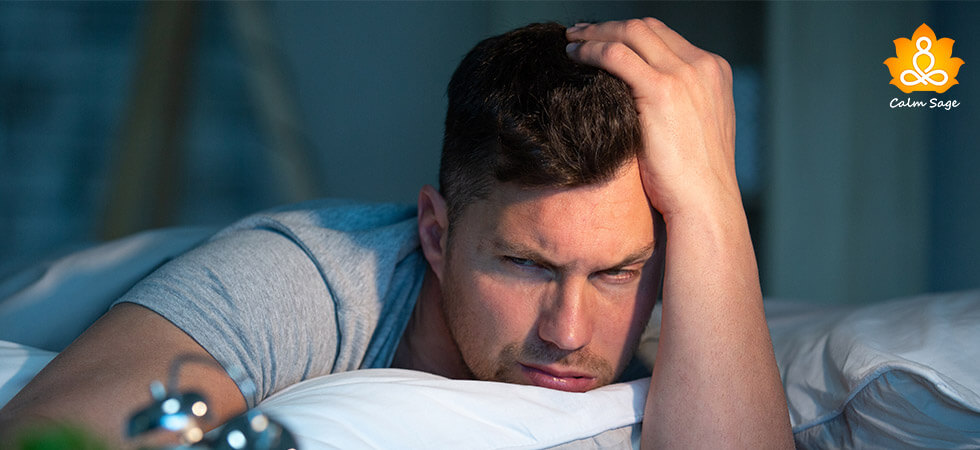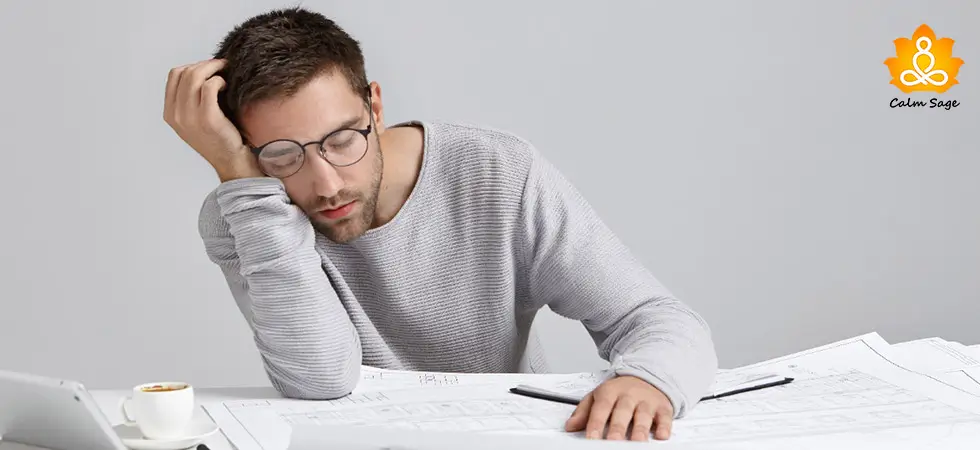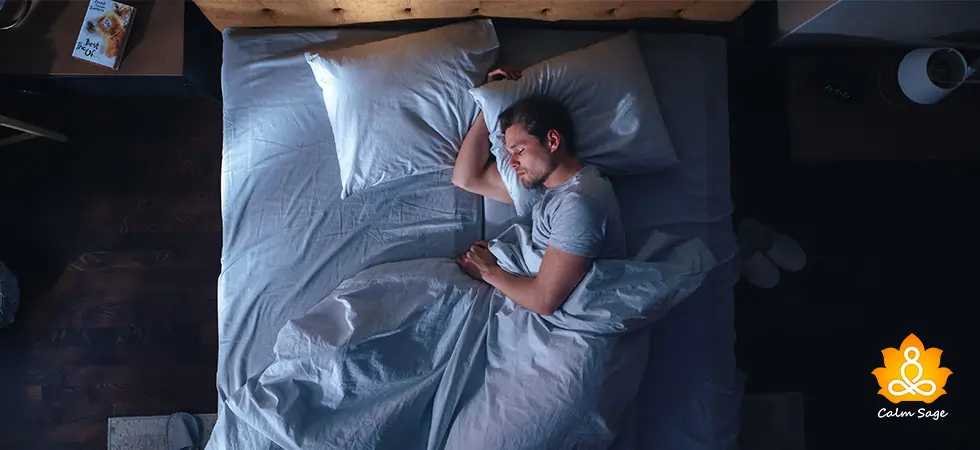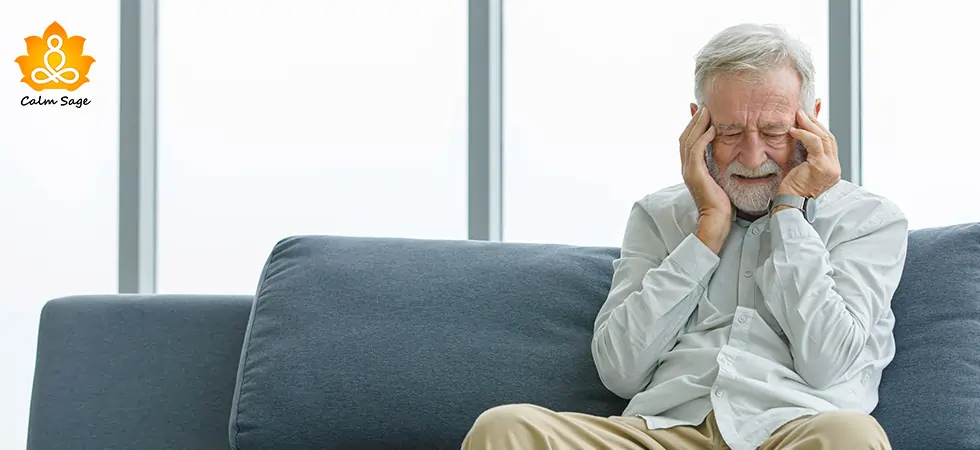Summer Insomnia Keeping You Up? Here’s Why It Happens (And How To Beat It)

The advent of summer means vacations on the beach, poolside barbeques, ice cream, warm weather, and carefree time, right? But that’s not all that summer brings. With summertime comes anxiety, depression, and sleepless nights.
After long winter months, you look forward to summers only to find that you’re unable to cope with the warm months as much as you struggle to cope with the winter months. You’re not the only one who struggles here, mind you.
Despite leisure time, vacations, and relaxing activities, it is common for your body (and mind) to forgo sleep. This inability to get a good night’s rest during summer can be called summer insomnia. And whether you believe it or not, summer insomnia is common and natural.
While difficulty falling asleep or staying asleep is not a concern, it isn’t a minor concern either. When you can’t sleep or get the rest your body and mind need, then it can affect your cognitive health, physical health, and even your mental stability.
Below, I’ll help you explore the reasons why summer insomnia or heat insomnia occurs and how you can beat summer insomnia.
What Is Summer Insomnia?
Summer insomnia is not like your regular insomnia. Why? Well, your sleep (or the lack of it) is affected by extended daylight hours and the production of melatonin, the sleep hormone. Melatonin is produced naturally at the right time aka nighttime, to support restful sleep (powered by our biological clock).
Our biological clock uses our body’s signals and our surroundings to determine the right time for the production of melatonin and sleep. Light, natural and/or artificial, can block the production of melatonin, hence affecting our sleep.
During summertime, sunrise is early in the morning; this signals our brains to wake up, however, the sunsets later during summertime, so this can eventually delay the production and release of the sleep hormone – melatonin.
This means a shorter sleep time and a difficult time falling asleep. Let’s explore other reasons why summer insomnia occurs.
Why Does Summer Insomnia Happen?
In a study, it was found that even though wake-up hours were earlier during summer, sleep issues including fatigue, grogginess, and insomnia were less common during winters.
Here are other common reasons why you may be struggling with summer insomnia:
1. More Daytime Hours
More daytime hours or excessive sun exposure is one of the factors that may contribute to your summer insomnia. More daytime hours can cause less delta wave sleep. This sleep phase can cause restfulness. Another factor that comes here is light, one of the most important external stimuli that affect our circadian rhythm (our body’s sleep-wake cycle).
2. Warmer Temperatures
Another factor that may contribute to summer insomnia can be the humid and warmer temperatures. Did you know that the ideal temperature for sleep is between 18-22°C? This temperature is almost impossible to maintain during summers. When your ideal sleep temperature exceeds its limits, getting restful sleep can be difficult. Even with open windows, the temperature is the least of your worries. The sunlight and other environmental disruptions can disturb your sleep.
3. Delayed Melatonin Production
Our body uses the signals to begin the production (and subsequent) release of melatonin. When the sun has set, only then our body signals the time to sleep and releases melatonin. However, because of the longer daytime hours during summer, melatonin production and release are delayed. This can mean shorter sleep time and more wakefulness during summers.
4. Increased Stress
When you have a lot on your mind, it can also cause an imbalance in brain chemistry and hormones. Brain chemistry and hormones play major roles in helping us stay focused and keep our body’s systems functioning. When you’re stressed, hormonal imbalances occur and this change can greatly affect your body’s ability to produce melatonin. More cortisol and less melatonin can result in restless and sleepless nights.
5. Less Physical Exertion
Regular physical exercise can aid the production of the right hormones and can help improve the quality of your sleep. However, during summertime, the levels of physical activities are low. Partly, because of warmer and humid weather. When you adopt a sedentary lifestyle or stay indoors and avoid physical activity, it can take a toll on your sleep schedule.
6. Changes In The Routine
Of course, with the weather, our routines change as well. Summers mean holidays and during leisure time, you go to bed and wake up later than you normally do. These changes in the routine can disrupt your sleep schedule too. Furthermore, it’s common to take naps more frequently during summers and this excessive sleep time can also hinder your regular nighttime rest.
7. Excess Leisure
Summertime means you’re likely to indulge in vacation time, larger meals, and consume more than usual amounts of alcohol. And when these activities are done closer to bedtime, it can mean half the amount of sleep. If you’re not careful and indulge in these habits closer to bedtime, then it can make it difficult for your body to get the rest it needs. Caffeine, aerated beverages, and alcohol can disrupt your sleep as they cause you to wake up frequently during the night.
How To Beat Summer Insomnia?
Here are some quick and easy ways to beat summer insomnia:
1. Take Care Of The Temperature:
Where and how you sleep also matters. To make sure you get restful sleep during summers, take care of your sleep environment. Take care of the room temperature, make sure the bedding is fresh, and there are little to no disruptions when you go to sleep including electronic devices, loud music, and bright lights.
2. Avoid A Sedentary Lifestyle:
Regular physical activities are important during summer. If you keep a sedentary lifestyle, it can affect your brain chemistry and hormone production, making it harder to fall asleep. Stay active during the day and practice some light exercises that promote drowsiness during the night.
3. Maintain A Routine:
During summer, sunset is delayed by a few hours but this doesn’t mean that you should change your routine. If you eat dinner at 7 pm then continue with this even if the sun hasn’t yet set fully. Maintaining a routine can help you keep your sleep schedule tight.
4. Don’t Exceed Naptime:
To make sure that your daytime nap doesn’t affect your nighttime sleep, don’t exceed your naptime by more than 20 minutes. If you need to take a nap during the day, make sure you do so between 1-3 pm. Any later than that will affect your nighttime rest.
5. Avoid Caffeine And Alcohol:
During the last hours of the day, it is recommended that you avoid the consumption of caffeine, alcohol, or other substances that can make you feel more alert. Also, try to eat a light meal at night and avoid sugar. A quick walk to digest the food before bed can also help.
6. Regulate Melatonin Production:
You can do this by regulating your sun exposure during the last hours of the day. To make sure melatonin production goes smoothly, you can block out excessive sunlight by using black-out curtains, dimming the lights, and avoiding loud sounds.
7. Practice Relaxation Techniques:
To get a good night’s rest, you can try relaxation techniques to calm your body at night and sleep well. You can try sleep meditation or sleep breathing exercises to calm down. If you’re worrying too much, you can try journaling to clear your mind and get the quiet you need to fall asleep.
If you are still unable to fall or stay asleep then you should consult a sleep expert or therapist. Sometimes, the lack of sleep can be associated with sleep deprivation or other sleep disorders. A therapist can help determine the cause of your lack of sleep and how you can fix it.
Falling asleep and staying asleep may be more difficult during summer than winter. Certain factors such as increased daytime hours, warmer temperatures, and other lifestyle or biological reasons may be contributing to your summer insomnia. With the above-mentioned steps, you can beat summer insomnia and get the rest your body (and mind) need.
I hope this article helped you understand why summer insomnia happens and how you can beat it. For more, you can write to us at info@calmsage.com or DM us on social media. You can also share your tips with us in the comments section below!
Take Care!




















